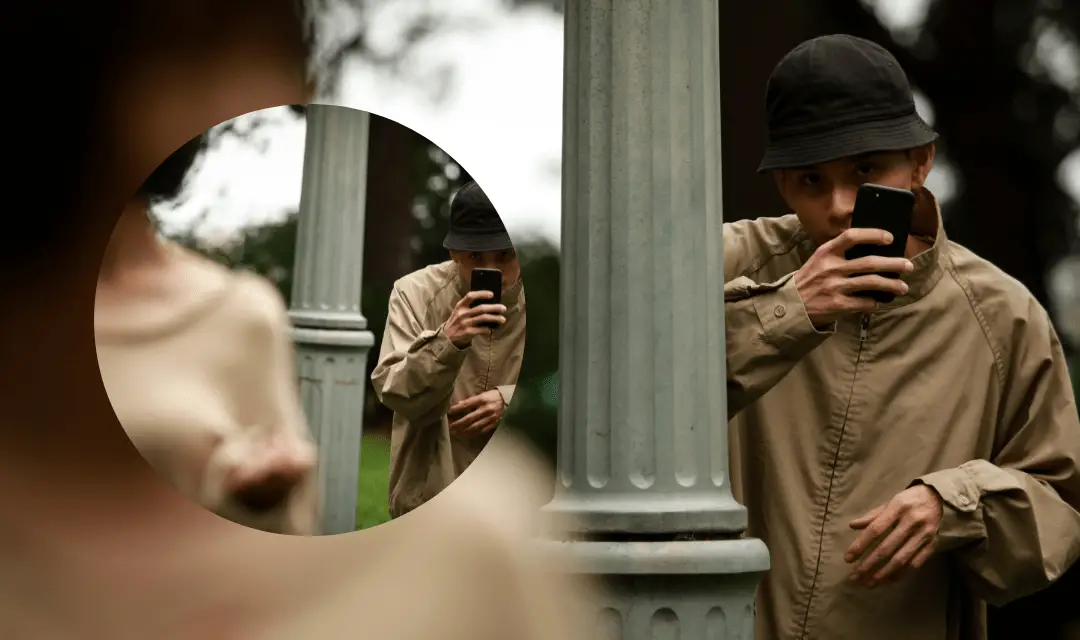What is RA 9995 and its scope?
The advancement of digital technology has paved the way to open new legal rights for people, in general. With it, the laws of the country have also adapted to the new needs of the people, thereby, creating and passing new statutes that would protect the people’s basic rights in a different circumstance, permeated by technology.
Undoubtedly, people have open themselves more to the use of digital technology. They have saved videos, photos, voice recordings, and the likes to their devices, knowing that these are extensions of themselves. As it is the case, it has been utilized, as well, to save memories, some casual, some for public consumption, but even more so, some are for own personal use and consumption.
Consequently, one of the progressive laws that has been enacted to protect the intimate privacy of an individual against unscrupulous individuals who use the modern technology to suit their basic instinct is the Republic Act No. 9995, otherwise known as the Anti-voyeurism Act.
Scope of the Law
The application of the laws has always been unique to each and every case. There are always considerations as to how and what should be made or done to weigh in the best possible circumstance for all the parties involved. Laws were created to support and devolve with the current situation of the society, to have an orderly situation therein.
That is basically why, with the advancement of technology, laws have also been born with it to adapt to the changing environment. The Anti-cybercrime law, the Anti-cyberbullying law, laws concerning intellectual properties in relation to the use of the internet, and the likes are foremost examples thereof.
Among all these, one recurring issue that has always been a topic of public discussion are the cases concerning sexual acts which have publicly leaked, whether intentional, voluntary, or accidental.
Taking pictures and filming the most intimate moments of a couple or even by lone individual are becoming the trends, especially during the advent of smartphones and digital camera.
Actual Scenarios
In 2019, the issue of the leakage of the private videos of Jim Paredes, a veteran musician of the Philippines , has been a huge topic of discussion among the show business and even the public. The leakages have been brought by the recording and storing of private and personal images and videos on different electronic devices.
This is just one example of the dangers of such acts. On the same news report, it has to be noted that the Philippine National Police Anti-Cybercrime Group (PNP-ACG) has actually recorded more than a hundred cases of the same circumstances just in the first two months of 2019.
Prevalence of the Crime
Prior to that, the National Bureau of Investigation Cybercrime Division also reported more than two hundred cases of the same for the first three months of 2019 and the whole of 2018. This goes to show that a lot of people, both in show business and the common people, have been victims of such criminal acts.
However, it now begs the question of whether there is a law that protects the people from the leakage of their private and personal records of provocative and erotic videos of images that they have saved for their own personal pleasures.
In actuality, the Philippines passed the Republic Act No. 9995 of 2009 entitled “An Act Defining and Penalizing the Crime of Photo and Video Voyeurism, Prescribing Penalties Therefor, and for Other Purposes” or the Anti-Photo and Video Voyeurism Act of 2009 which “values the dignity and privacy of every human person and guarantees full respect for human rights x x x [and] penalize acts that would destroy the honor, dignity and integrity of a person.”
Law’s Objectives
In the case of Atty. Raymund P. Palad, vs. Lolit Solis, Salve V. Asis, Al G. Pedroche and Ricardo F. Lo,1 wherein the petitioner’s client, a public figure, has been in a controversy involving the leakage of her provocative footage to anyone who has access to the internet, Justice Peralta has briefly explained the Anti-Photo and Video Voyeurism Act of 2009, to wit:
“R.A. 9995, Section 3 (d), “Photo or video voyeurism” means the act of taking photo or video coverage of a person or group of persons performing sexual act or any similar activity or of capturing an image of the private area of a person or persons without the latter’s consent, under circumstances in which such person/s has/have a reasonable expectation of privacy, or the act of selling, copying, reproducing, broadcasting, sharing, showing or exhibiting the photo or video coverage or recordings of such sexual act or similar activity through VCD/DVD, internet, cellular phones and similar means or device without the written consent of the person/s involved, notwithstanding that consent to record or take photo or video coverage of same was given by such person’s.”2
Prohibited Acts
More so, as lifted directly, Section 4 of RA 9995,3 clearly prohibits and declare the following acts unlawful, to wit:
Section 4. Prohibited Acts. – It is hereby prohibited and declared unlawful for any person:4
-
- To take photo or video coverage of a person or group of persons performing sexual act or any similar activity or to capture an image of the private area of a person/s such as the naked or undergarment clad genitals, public area, buttocks or female breast without the consent of the person/s involved and under circumstances in which the person/s has/have a reasonable expectation of privacy;5
- To copy or reproduce, or to cause to be copied or reproduced, such photo or video or recording of sexual act or any similar activity with or without consideration;6
- To sell or distribute, or cause to be sold or distributed, such photo or video or recording of sexual act, whether it be the original copy or reproduction thereof; or7
- To publish or broadcast, or cause to be published or broadcast, whether in print or broadcast media, or show or exhibit the photo or video coverage or recordings of such sexual act or any similar activity through VCD/DVD, internet, cellular phones and other similar means or device.8
The prohibition under paragraphs (b), (c) and (d) shall apply notwithstanding that consent to record or take photo or video coverage of the same was given by such person/s. Any person who violates this provision shall be liable for photo or video voyeurism as defined herein.9
Penalties for such violations
In the event of conviction of the perpetrator, the following penalties may are imposed, to wit:
Section 5. Penalties. – The penalty of imprisonment of not less that three (3) years but not more than seven (7) years and a fine of not less than One hundred thousand pesos (P100,000.00) but not more than Five hundred thousand pesos (P500,000.00), or both, at the discretion of the court shall be imposed upon any person found guilty of violating Section 4 of this Act.10
If the violator is a juridical person, its license or franchise shall be automatically be deemed revoked and the persons liable shall be the officers thereof including the editor and reporter in the case of print media, and the station manager, editor and broadcaster in the case of a broadcast media.11
If the offender is a public officer or employee, or a professional, he/she shall be administratively liable.12
If the offender is an alien, he/she shall be subject to deportation proceedings after serving his/her sentence and payment of fines.13
Clearly, the law imposes that whoever records and broadcast or leak acts committed without the consent of the rightful owner of the provocative and erotic acts should be prohibited by law.
Indubitably, penalties shall be imposed upon the person who has violated the rights of the offended party. In this line, it is obvious that the law is designed to be very straightforward and simple.
As a form of basic protection of the people from any criminal acts committed in relation to this, the law safeguards and specifies all conditions that might affect or that might be done to commit the unlawful act.
“Nullum Crimen Nulla Poena Sine Lege”
However, prior to the enactment of RA 9995, it boils down to the consent of the person involved in such sexual and provocative acts. This happened in the case of Ms. Halili. Thus:
For instance, the case of Katrina Halili and Hayden Kho, which has been a huge talk of the town, has been dismissed by the Honorable Court of Appeals, affirming the decision of the Pasig City Regional Trial Court. The reason was, at that time, it was alleged that Halili had consented to the video recording of their sexual video scandal, although she had initially claimed otherwise.
Although the case filed by Halili’s party was accusing Kho of allegedly violating the law on violence against women and children for allegedly uploading the videos of their sexual acts, this is a prime example of exoneration when consent has been given to any acts supposedly committed.
Aside from this, RA 9995 was not yet a law at the time of the commission of the alleged act of voyeurism. Hence, in accordance with the principle of criminal law, there is no crime if there is no law punishing it.
Thus, when the indictment hinges on RA 9262,14 again, it will come down to the consent of all the parties involved.
If there has been sufficient proof that Halili really did not have an ounce of idea that their acts are being recorded, it could have been a stronger case. But again, there was no sufficient evidence to support her claim.
The law only wanted to protect the rights of its people by weighing everything down without biases and prior judgment. Although it might seem that Halili has been victimized by the leakage of the video, she was also well aware of its possible repercussions of videoing and saving a copy of their sexual acts in any digital device.
Such dangers must always be considered in doing anything that might prove unacceptable and shameful in the eyes of the public.
Is the violation of RA 9995 a bailable offense?
Under RA 9995, the penalty of imprisonment ranges from three (3) years to seven (7) years. Bail is a matter of right under Philippine Laws, except where the imposable penalty for the crime or felonies committed is a capital punishment or the perpetrator committed a capital offense.
The punishment for the commission of a capital offense ranges from twenty (20) years and one (1) day to forty (40) years. It may be reclusion perpetua or life imprisonment sentence, as a result of conviction.
Since the imprisonment for conviction under RA 9995 is less than the one provided for a capital offense, it follows that bail is a matter of right. Therefore, it is a bailable offense.
Final Thoughts
Finally, the Anti-Photo and Video Voyeurism Act of 2009 serves as root for all the succeeding laws that took inspiration from it. Although, there are a lot that could still be done to make the full- proof, the passing of such act created a new sense of protection and freedom of people.
Similarly however, all acts must always be considered with full responsibility and repercussions to avoid any unwanted legal actions right after. Our laws can only do so much, it is still in our hands to secure and protect ourselves as a first line of defense.




